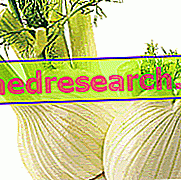The draining herbal teas are extemporaneous, very diluted aqueous preparations, obtained from one or more plant drugs with diuretic action. To extract the medicinal substances with draining properties, the solvent effect of the water is exploited, which depending on the preparation can be hot (infusions and decoctions) or cold (macerated).
There are really many recipes available for the preparation of draining herbal teas, nowadays rather sought after for the known problems of water retention and for the growing desire to "purify" from the excesses of the modern lifestyle.

In addition to specific drugs with diuretic action, a draining herbal tea may contain herbs aimed at treating the causes responsible for the excessive accumulation of liquids. In edema of the lower limbs due to venous insufficiency and cellulite, for example, it is possible to associate extracts of red vine or centella asiatica. In urinary infections, on the other hand, the antiseptic action of the bearberry and the decongestant and antispastic action of chamomile is useful.
In all cases, to enhance the draining action of the herbal tea, it is important to reduce the dietary intake of sodium to no more than 2 grams per day; thus, the indirect effect of the extra fluid intake (herbal tea) and the reduction of food sodium is added to the direct effect of the drugs with diuretic action.
List of the most known draining effect plants
Asparagus (rhizome, roots), birch (leaves), cherry (peduncles of fruits), horsetail (aerial parts), ash (leaves and seeds), weeds (rhizome), corn (stigmas or "barbs of maize"), ortosifon ( leaves), spiny ononide, (root), nettle (flowering plant, roots), pilosella (aerial parts), parsley (parts of areas, roots), dandelion (root) goldenrod (flowering tops).
NOTES: a good draining herbal tea can also contain only one of these drugs. Most traditional preparations do not contain more than 4-5 vegetable sources, while in many commercial "supermarket" preparations different drugs are used as coot ingredients, ie as herbs inserted in the product not so much for the real effectiveness (given the low dosages ), as for the commercial appeal they exercise towards the general public.
Among the drugs with a sweetening action, useful for improving the organoleptic characteristics of the herbal tea, we recall: mint, lemon balm, verbena, fennel, green anise, orange, licorice, basil, jasmine.
Examples of draining herbal teas
Draining herbal tea 1 | |
| Gramigna, root | 20% |
| Birch, leaves | 20% |
| Goldenrod, top | 20% |
| Ononide, root | 20% |
| Licorice, briar | 20% |
| Infusion: 20 grams of preparation per liter; take 250 ml one to three times a day. | |
Draining herbal tea 2 | |
Decoction of corn stigmas: from 0.5 to 3 grams of corn stigmas for 250-500 ml of cold water. Bring to a boil and, once reached, keep it on a low flame for 5 minutes. Strain and drink 4 to 6 cups of herbal tea a day. |
Draining herbal tea 3 | |
| Horsetail (powdered cauli) | 30 g |
| Corn (stigmas) | 30 g |
| Bearberry (leaves) | 30 g |
| Peppermint (leaves) | 10 g |
| Decoction: let two tablespoons of the preparation boil for about 20-30 minutes in about half a liter of water. Three cups a day are given. This draining herbal tea is useful for urinary tract infections. | |
Draining herbal tea 4 | |
Corn (stigmas) | 30% |
| Cherry (peduncles) | 30% |
| Fennel fruits (seeds) | 20% |
| Licorice root | 10% |
| Mint (leaves) | 10% |
| Infusion: 2 tablespoons of mixture per liter of boiling water, to be poured onto the preparation leaving it to infuse for 15 minutes. Filter before use; drink 2-3 cups of draining herbal tea per day. | |



